Alfa Romeo Junior vs Lotus Emeya – Which model is better for everyday use?
Two cars, one duel: Alfa Romeo Junior meets Lotus Emeya.
Which one wins in performance, efficiency and value for money? Find out now!
Costs and Efficiency:
Price and efficiency are often the first things buyers look at. Here it becomes clear which model has the long-term edge – whether at the pump, the plug, or in purchase price.
Alfa Romeo Junior has a significantly advantage in terms of price – it starts at 25700 £, while the Lotus Emeya costs 92600 £. That’s a price difference of around 66891 £.
In terms of energy consumption, the advantage goes to the Alfa Romeo Junior: with 15.10 kWh per 100 km, it’s noticeable more efficient than the Lotus Emeya with 18.70 kWh. That’s a difference of about 3.60 kWh.
As for range, the Lotus Emeya performs clearly perceptible better – achieving up to 580 km, about 170 km more than the Alfa Romeo Junior.
Engine and Performance:
Power, torque and acceleration say a lot about how a car feels on the road. This is where you see which model delivers more driving dynamics.
When it comes to engine power, the Lotus Emeya has a decisively edge – offering 918 HP compared to 280 HP. That’s roughly 638 HP more horsepower.
In acceleration from 0 to 100 km/h, the Lotus Emeya is significantly quicker – completing the sprint in 2.80 s, while the Alfa Romeo Junior takes 5.90 s. That’s about 3.10 s faster.
In terms of top speed, the Lotus Emeya performs slightly better – reaching 256 km/h, while the Alfa Romeo Junior tops out at 206 km/h. The difference is around 50 km/h.
There’s also a difference in torque: Lotus Emeya pulls significantly stronger with 985 Nm compared to 345 Nm. That’s about 640 Nm difference.
Space and Everyday Use:
Whether family car or daily driver – which one offers more room, flexibility and comfort?
Both vehicles offer seating for 5 people.
In curb weight, Alfa Romeo Junior is decisively lighter – 1380 kg compared to 2555 kg. The difference is around 1175 kg.
In terms of boot space, the Lotus Emeya offers a bit more room – 509 L compared to 415 L. That’s a difference of about 94 L.
In maximum load capacity, the Lotus Emeya performs barely noticeable better – up to 1388 L, which is about 108 L more than the Alfa Romeo Junior.
When it comes to payload, Lotus Emeya noticeable takes the win – 545 kg compared to 420 kg. That’s a difference of about 125 kg.
Who wins the race?
The Lotus Emeya proves to be leaves the rival little chance and therefore becomes our DriveDuel Champion!
Lotus Emeya is the better all-rounder in this comparison.
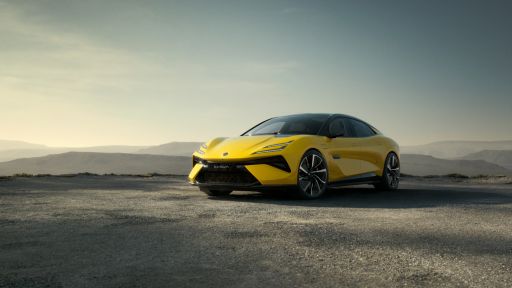 @ Lotus Cars
@ Lotus Cars
Lotus Emeya
Alfa Romeo Junior
The Alfa Romeo Junior captures the essence of Italian design with its sleek lines and compact dimensions, making it an icon of elegance and performance. With a spirited driving experience and a charming retro aesthetic, it appeals to enthusiasts and casual drivers alike. This delightful car embodies the brand's rich heritage while remaining a fun and engaging option for those seeking a unique automotive experience.
details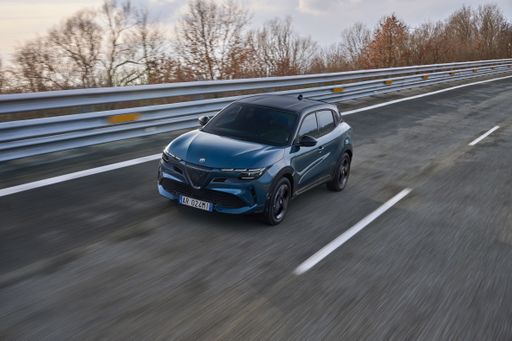 @ Alfa Romeo / Stellantis Media
@ Alfa Romeo / Stellantis Media
 @ Alfa Romeo / Stellantis Media
@ Alfa Romeo / Stellantis Media
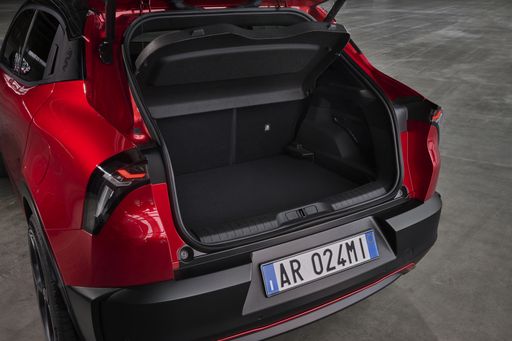 @ Alfa Romeo / Stellantis Media
@ Alfa Romeo / Stellantis Media
Lotus Emeya
The Lotus Emeya represents a bold step forward for the brand, combining sleek design with cutting-edge technology. This electric vehicle offers a perfect blend of performance and luxury, capturing the essence of Lotus's heritage while pushing into the future. Its aerodynamic silhouette and plush interior ensure that both driving enthusiasts and comfort seekers will find much to admire.
details @ Lotus Cars
@ Lotus Cars
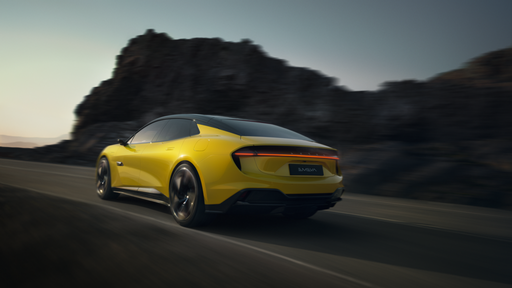 @ Lotus Cars
@ Lotus Cars
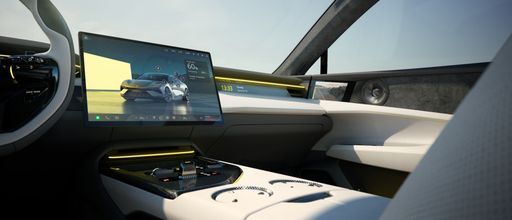 @ Lotus Cars
@ Lotus Cars
 @ Alfa Romeo / Stellantis Media
@ Alfa Romeo / Stellantis Media
|
 @ Lotus Cars
@ Lotus Cars
|
|
|
|
Costs and Consumption |
|
|---|---|
|
Price
25700 - 41600 £
|
Price
92600 - 138000 £
|
|
Consumption L/100km
4.8 - 5.4 L
|
Consumption L/100km
-
|
|
Consumption kWh/100km
15.1 - 17.5 kWh
|
Consumption kWh/100km
18.7 - 22.4 kWh
|
|
Electric Range
344 - 410 km
|
Electric Range
485 - 580 km
|
|
Battery Capacity
0.4 - 51 kWh
|
Battery Capacity
98.90 kWh
|
|
co2
0 - 119 g/km
|
co2
0 g/km
|
|
Fuel tank capacity
44 - 45 L
|
Fuel tank capacity
-
|
Dimensions and Body |
|
|---|---|
|
Body Type
SUV
|
Body Type
Hatchback
|
|
Seats
5
|
Seats
5
|
|
Doors
5
|
Doors
5
|
|
Curb weight
1380 - 1689 kg
|
Curb weight
2555 - 2650 kg
|
|
Trunk capacity
340 - 415 L
|
Trunk capacity
509 L
|
|
Length
4173 mm
|
Length
5139 mm
|
|
Width
1781 mm
|
Width
2005 mm
|
|
Height
1505 - 1538 mm
|
Height
1459 mm
|
|
Max trunk capacity
1205 - 1280 L
|
Max trunk capacity
1388 L
|
|
Payload
390 - 420 kg
|
Payload
450 - 545 kg
|
Engine and Performance |
|
|---|---|
|
Engine Type
Electric, Petrol MHEV
|
Engine Type
Electric
|
|
Transmission
Automatic
|
Transmission
Automatic
|
|
Transmission Detail
Dual-Clutch Automatic, Reduction Gearbox
|
Transmission Detail
Reduction Gearbox
|
|
Drive Type
Front-Wheel Drive, All-Wheel Drive
|
Drive Type
All-Wheel Drive
|
|
Power HP
136 - 280 HP
|
Power HP
612 - 918 HP
|
|
Acceleration 0-100km/h
5.9 - 9.1 s
|
Acceleration 0-100km/h
2.8 - 4.2 s
|
|
Max Speed
150 - 206 km/h
|
Max Speed
250 - 256 km/h
|
|
Torque
230 - 345 Nm
|
Torque
710 - 985 Nm
|
|
Number of Cylinders
3
|
Number of Cylinders
-
|
|
Power kW
100 - 207 kW
|
Power kW
450 - 675 kW
|
|
Engine capacity
1199 cm3
|
Engine capacity
-
|
General |
|
|---|---|
|
Model Year
2024 - 2025
|
Model Year
2025
|
|
CO2 Efficiency Class
A, C, D
|
CO2 Efficiency Class
A
|
|
Brand
Alfa Romeo
|
Brand
Lotus
|
What drive types are available for the Alfa Romeo Junior?
Available configurations include Front-Wheel Drive or All-Wheel Drive.
The prices and data displayed are estimates based on German list prices and may vary by country. This information is not legally binding.
